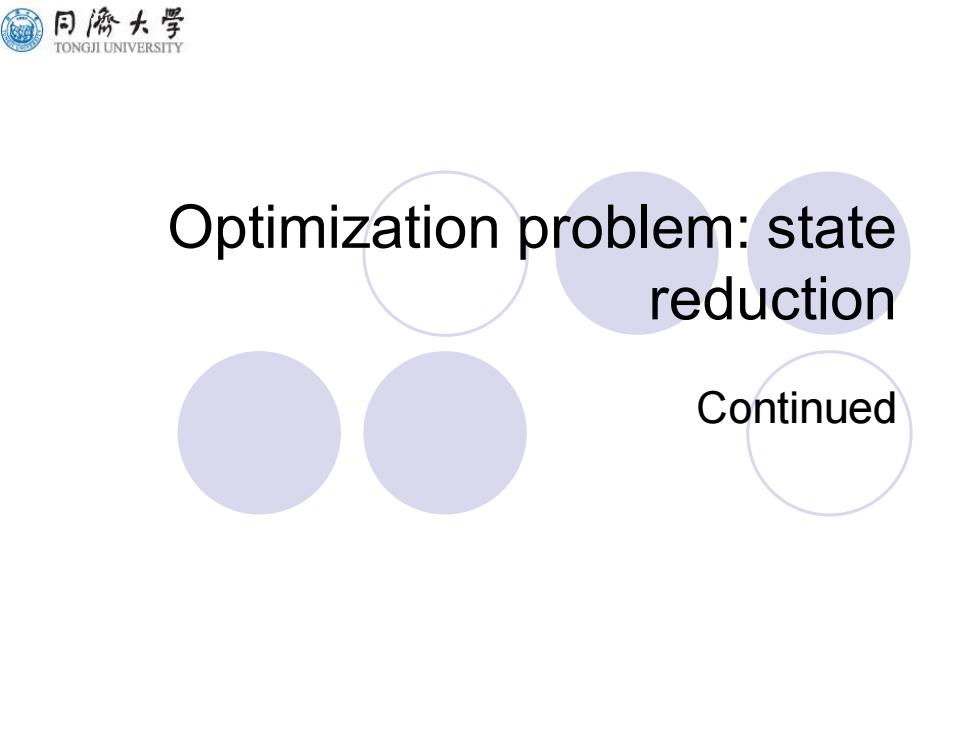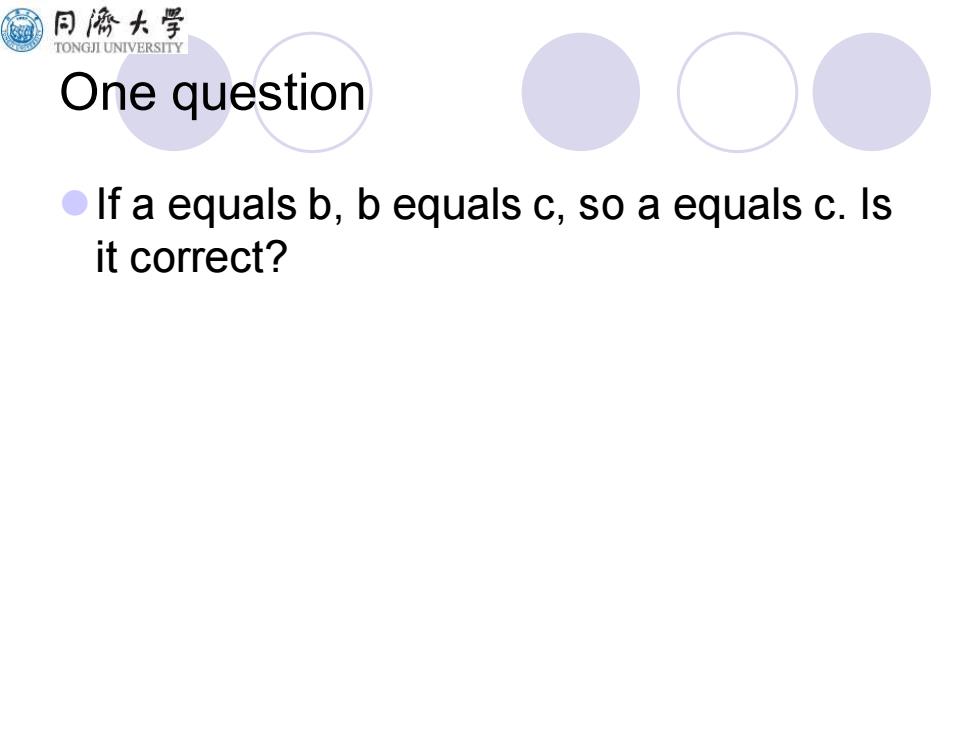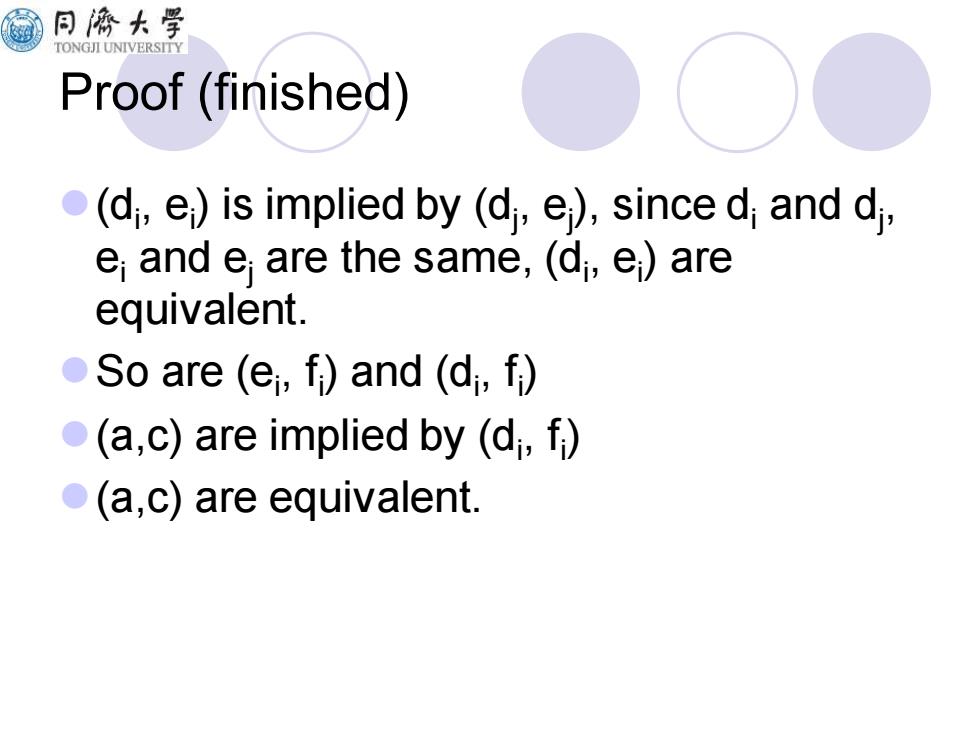
同桥大学 TONGJI UNIVERSITY Optimization problem:state reduction Continued
Optimization problem: state reduction Continued

同源大学 TONGJI UNIVERSITY One question oIf a equals b,b equals c,so a equals c.Is it correct?
One question ⚫If a equals b, b equals c, so a equals c. Is it correct?

同©大学 TONGJI UNIVERSITY Correct of Not? This is correct when the output and the next state are definite. ●Proof: a-d-d-d2… b-e-e-d2… c-∫--f3
Correct of Not? ⚫ This is correct when the output and the next state are definite. ⚫ Proof: 1 2 1 2 1 2 a d d d b e e d c f f f − − − − − − − − −

同桥大学 TONGJI UNIVERSITY Proof (continued) It is a Finite state machine,there must exist number i and j,such that d =d; e;=ej
Proof (continued) ⚫ It is a Finite state machine, there must exist number i and j, such that i j i j i j d d e e f f = = =

同濟大学 TONGJI UNIVERSITY Proof(finished) (di,e)is implied by (di,e),since di and dj, e;and e;are the same,(di,e)are equivalent. ●So are(e,f)and(d,f) (a,c)are implied by (di,f) (a,c)are equivalent
Proof (finished) ⚫(di , ei ) is implied by (dj , ej ), since di and dj , ei and ej are the same, (di , ei ) are equivalent. ⚫So are (ei , fi ) and (di , fi ) ⚫(a,c) are implied by (di , fi ) ⚫(a,c) are equivalent